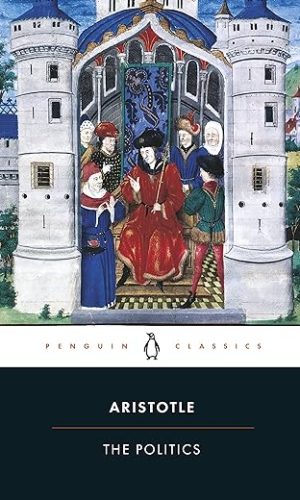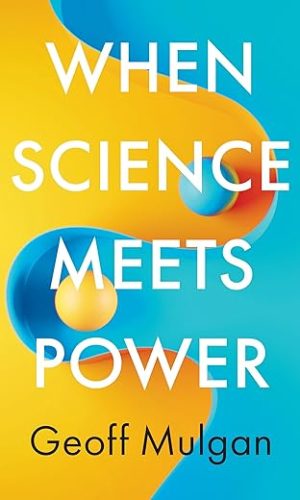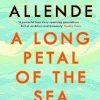A Long Petal of the Sea: The Sunday Times Bestseller
£4.80
THE SUNDAY TIMES BESTSELLER
THE NEW YORK TIMES BESTSELLER
_______________
‘A powerful love story spanning generations… Full of ambition and humanity’ – Sunday Times
‘One of the strongest and most affecting works in Allende’s long career’ – New York Times Book Review
_______________
On September 3, 1939, the day of the Spanish exiles’ splendid arrival in Chile, the Second World War broke out in Europe.
Victor Dalmau is a young doctor when he is caught up in the Spanish Civil War, a tragedy that leaves his life – and the fate of his country – forever changed. Together with his sister-in-law, the pianist Roser, he is forced out of his beloved Barcelona and into exile.
When opportunity to seek refuge arises, they board a ship chartered by the poet Pablo Neruda to Chile, the promised ‘long petal of sea and wine and snow’. There, they find themselves enmeshed in a rich web of characters who come together in love and tragedy over the course of four generations, destined to witness the battle between freedom and repression as it plays out across the world.
A masterful work of historical fiction that soars from the Spanish Civil War to the rise and fall of Pinochet, A Long Petal of the Sea is Isabel Allende at the height of her powers.
_______________
‘A masterful work of historical fiction about hope, exile and belonging’ – Independent Online
‘A defiantly warm and funny novel, by somebody who has earned the right to argue that love and optimism can survive whatever history might throw at us’ – Daily Telegraph
‘A grand storyteller who writes with surpassing compassion and insight. Her place as an icon of world literature was secured long ago’ – Khaled Hosseini
‘A novel not just for those of us who have been Allende fans for decades, but also for those who are brand new to her work: what a joy it must be to come upon Allende for the first time’ – Colum McCann
‘Allende’s style is impressively Olympian and the payoff is remarkable’ – Guardian
‘Epic in scope, yet intimate in execution’ – i
Read more
Additional information
| Publisher | 1st edition (21 Jan. 2020), Bloomsbury Publishing |
|---|---|
| Language | English |
| File size | 2928 KB |
| Text-to-Speech | Enabled |
| Screen Reader | Supported |
| Enhanced typesetting | Enabled |
| X-Ray | Enabled |
| Word Wise | Enabled |
| Sticky notes | On Kindle Scribe |
| Print length | 318 pages |
| Page numbers source ISBN | 0593157206 |










by Kindle Customer
This is a wonderful story of a young couple who flee the Spanish civil war and emigrate to Chile. They build a new life for themselves, but no country is without its own troubles.
by Queen Anne II
Good
by Mike MacPherson
Stands well above the usual level of historical romantic novels. Many exquisitely written passages ( some dross too) that are amongst the best I’ve read about lust, grief, shame, avarice but not all at once! There’s great constructional skill in abundance. Of course, she lets us know there
Must be a tying of knots and she doesn’t stop until all is resolved. One quibble: her translator deserves an acknowledgement or was this all her own?
by jan@doole.co.uk
This novel is one to be savoured. It will stay with you for ever. Written in a gentle, understated way it nevertheless addresses big topics of exile, love, loss, rootlessness, powerlessness and survival. I loved it.
by Pilar Dominguez Chacón
Víctor & Roser, the main characters feel as real people who could have live d through the true historical events described in this fictional novel.
If you want to know what it felt like living a civil war in the loosing side and be a refugee in a country on the other side of the world you should read this book.
by CBS
This is the story of the lives of Victor Dalmau and Roser Brugeura, combatants on the Republican side in the Spanish Civil War, two of 2,000 emigres to Chile at the end of that war, and victims of the 1973 coup that overthrew the elected Chilean government of President Salvador Allende. The author’s father was first cousin to the president; for her, the story is a somewhat personal one.
This is a very good book indeed, that packs a real emotional punch. We see the lives of Victor and Roser, from their 20s, young, fit and strong, during the Spanish war, up to their frail old age. In 1939, they are exiled from Spain to Chile; in the aftermath of the 1973 coup, from Chile to Venezuela. They end up back in Chile in the late 1980s, as the Pinochet dictatorship weakens. They are good people, trying to live good lives. But history, politics and war keep interfering.
In pre-Civil War Spain, Victor is son to (music) Professor Marcel Lluis Dalmau and brother to Guillem. Guillem is the hothead, physically strong and combative, a natural soldier. Victor is the more cerebral, introverted and sensitive, destined to be a doctor. Roser is a student of the Professor and is attracted to Guillem. Guillem is lost in the war; in the Republican Retreat from Catalonia into France, Victor protects Roser and the pair are incarcerated in the French concentration camp at Argeles-sur-mer. They don’t regard themselves as lovers, but enter into a de-facto marriage of convenience. This becomes a great de-facto love-story over the more than half-century that follows.
It is a little-known fact of history that, in 1939, the Government of Chile, through the agency of the poet Pablo Neruda, sponsored the intake of 2,000 refugees from Spain. These — including Victor and Roser — sailed from Spain to Valparaiso, arriving at the Chilean port on September 3rd, 1939, the day on which Great Britain declared war on Germany. Some idealistic, rich and right-wing Chileans participated in the care of the immigrants. Victor and Roser are looked after by the del Solar family — hard-right, reactionary, conservative and Catholic; not very different from the Francoists from whom the immigrants are running. But it works out and, over the next three decades, Victor and Roser become Chilean. As they naturalise and integrate, Spain for them becomes largely a memory.
All is pretty good until the Allende government is elected in Chile in 1970. Openly Marxist, it tries redistributive (to the poor) economic policies that (abetted by US interference) lead to shortages, money-printing, hyper-inflation and social unrest. The military takes over in 1973 and Victor is imprisoned for a second time. On his fortuitous release, Victor and Roser resettle in Venezuela, then enlightened, peaceful and prosperous. They return to Chile, as things loosen up there — in time to say their goodbyes and for all the familial loose ends to be tied up. And this is the melancholy bit. The decline of the pair into old age is sensitively and affectingly told. For me, it is rather too affecting and goes on rather too long; it had me thinking about a stiff whiskey or two just to lighten the despair.
For the author, the material is clearly close to home — both literally and in her life’s experience. We get an insight into the nature of Chilean society that is new to me. It’s a great tale, a great family saga depicting people of widely different backgrounds, beliefs and politics — and all at the mercy of great historical events. Recommended.
by Lorna Doone
I enjoyed this tale through the Franco oppression in Spain to the exile of refugees to South America.
It was a good lesson in this history from the author who had seen and learnt of episodes first hand.
Yes, the ending was a little predictable but that didn’t matter.
by BookWorm
‘A Long Petal of the Sea’ follows the fortunes of a Catalan family, centred on Victor Dalmau. He survives the Spanish Civil War whilst working as a doctor to injured republican fighters, and migrates to Chile on a ship full of refugees organised by Chilean poet Pablo Neruda. After building a new life there with his family, he is later caught up in brutal military coup and forced to flee his homeland once again.
Allende herself was forced into exile in Venezuela by the coup (her father was a cousin of the deposed president) after first helping many others escape, so she writes with the gravity of first hand experience. Her descriptions of the civil war in Spain are also unflinching and graphic despite not having been present personally for that. Although the Dalmau family are fictional, there are also many historical figures featured including President Allende and Pablo Neruda. The transport ship which brought 2000 victims of the civil war to refuge in Chile was real, organised by Neruda who was a diplomat at the time.
Allende does a good job of combining both the personal and the national in her writing – family dramas are mixed with those affecting the entire country and intertwine. Her characters are likeable, particularly Victor and his stoic wife Roser. However I never felt a strong connection with any of them. I always had a sense of looking in from the outside rather than really living the moments with them. Perhaps it is the jumps in time between sections, which make it harder to feel you are moving with the characters. Although I cared what happened to some degree, I wasn’t strongly personally invested.
Anyone interested in history – particularly Spanish, Catalan and South American history, should have this on their must-read list. For other readers, it’s a solidly written historical family saga, but perhaps not the best of its genre.